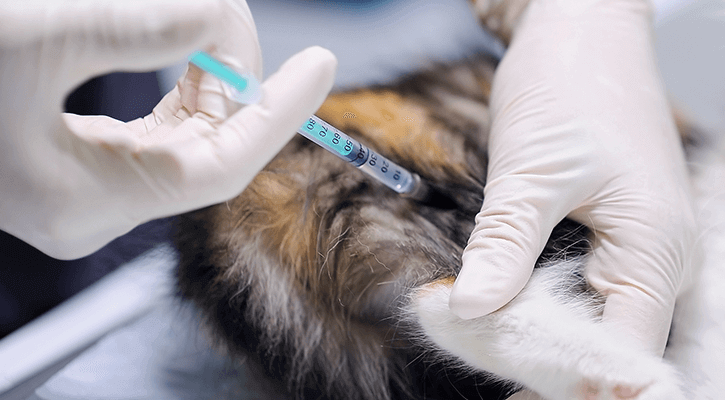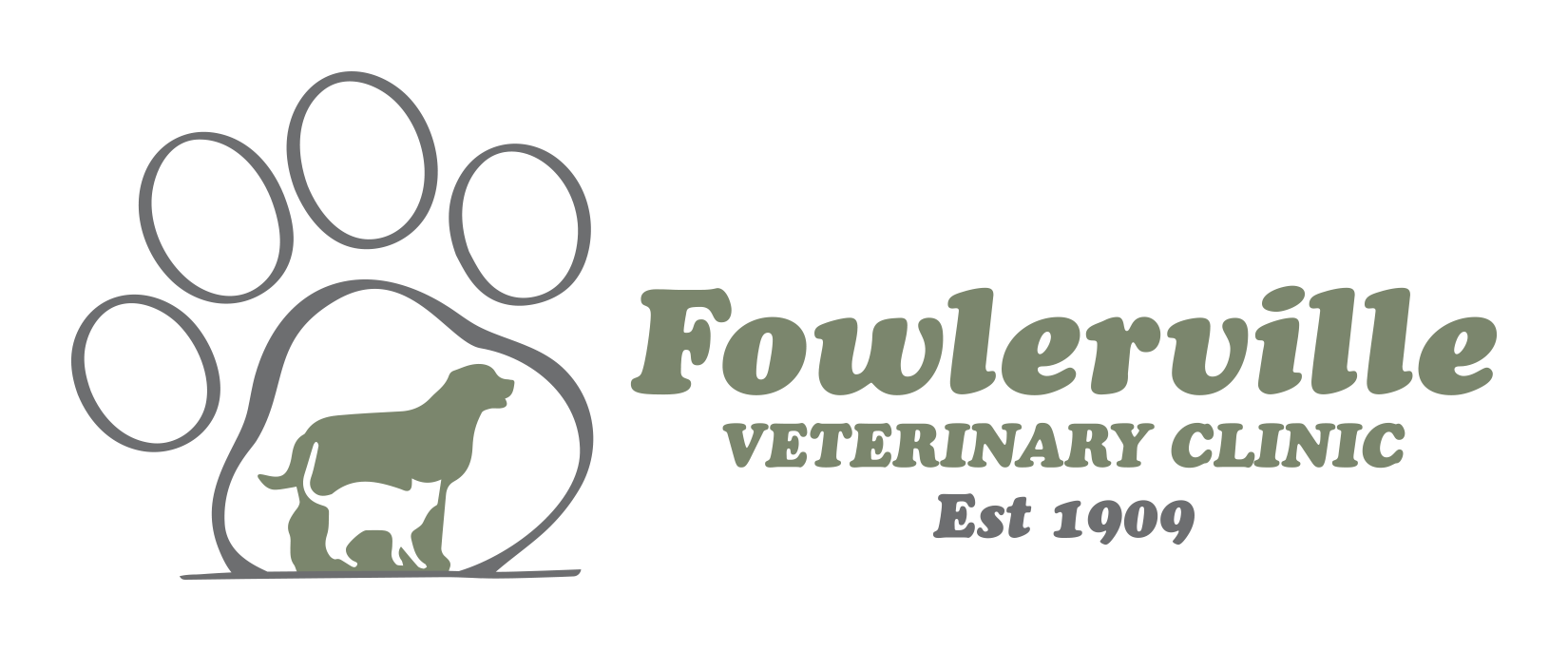
Vaccinations
Pet Vaccinations Fowlerville Veterinary Clinic
What Exactly Are Vaccines?
Vaccines help prepare the body’s immune system to fight the invasion of disease-causing organisms. Vaccines contain antigens, which look like the disease-causing organism to the immune system but don’t actually cause disease. When the vaccine is introduced to the body, the immune system is mildly stimulated. If a pet is ever exposed to the real disease, his immune system is now prepared to recognize and fight it off entirely or reduce the severity of the illness.
How Important Are Vaccines to the Health of My Pet?
Vaccines are very important in managing the health of your cat or dog. Not every pet needs to be vaccinated against every disease. It is very important to discuss with your veterinarian a pet vaccination protocol that’s right for your pet. Factors that should be examined include age, medical history, environment, travel habits and lifestyle. Most vets highly recommend administering core vaccines to healthy pets.
When To Vaccinate My Vet?
If his mother has a healthy immune system, a puppy or kitten will most likely receive antibodies in mother’s milk while nursing. Puppies and kittens should receive a series of vaccinations starting at six to eight weeks of age.
It is important to realize that vaccines have saved countless lives, and play a vital role in the battle against canine infectious disease. Additionally, rabies vaccinations have saved the lives of countless dogs, cats and many humans, as well. In some developing countries, hundreds of people die each year due to rabies contracted from dog bites.
Young animals are like kids–it’s a never-ending job to keep them safe and happy. Vaccinating your pet is a relatively inexpensive but very important way to protect his or her health. In addition to preventing many life-threatening illnesses, vaccinations can prevent diseases prevalent in wildlife and those that can be passed to humans. It’s important to administer vaccinations when pets are puppies and kittens because their young immune systems are still developing and need protection to stay healthy.
While any medical treatment involves some degree of risk, in the case of vaccinations, the benefits far outweigh any potential side effects. Adverse reactions are rare and usually mild and short-term when they do occur.
Which vaccines should your pet have? “Core” vaccines are those recommended—and possibly mandated by law—for most pets. Core vaccines include:
- Rabies (dogs and cats)
- DA2PPV – Distemper, Hepatitis, Adenovirus 2, Parvo and Parainfluenza (dogs)
- FVRCP – Feline Viral Rhinotracheitis, Calicivirus and Panleukopenia (cats)
- Lepto
Other non-core, but highly suggested vaccinations for cats include FIV for feline immunodeficiency virus and FeLV to protect against feline leukemia. For dogs, bordetella and canine influenza shots are recommended if they frequent dog parks, boarding kennels, or any place where they’re socializing with other canines.
It’s also important to note that even pets who live primarily indoors should be vaccinated, as they can still be exposed to a
Contact Us
For more information or to schedule an appointment, call us at (517) 223-8812.

